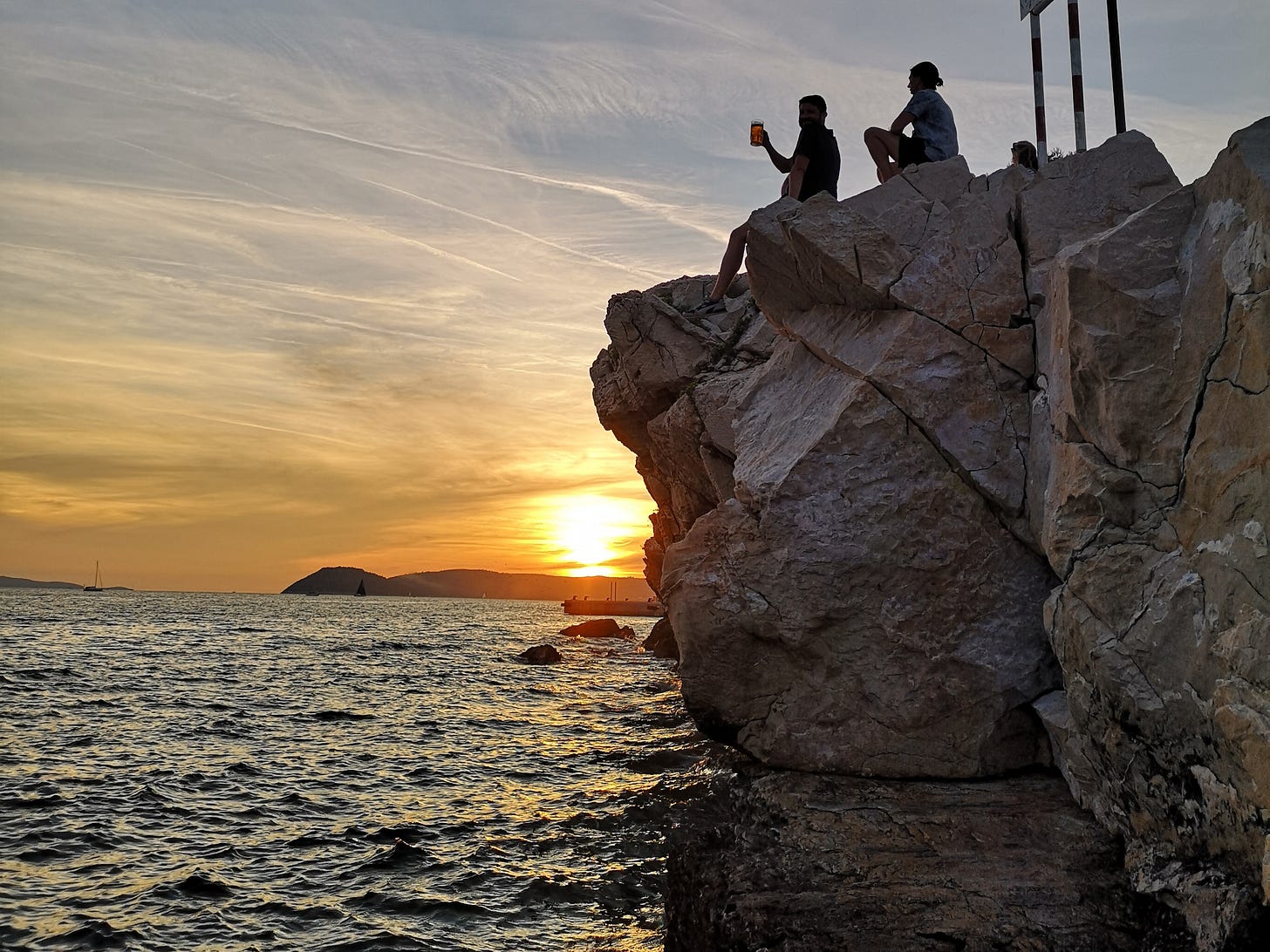I’ve spent close to 10 of the last 30 months in Croatia. It’s become a home away from home I never expected it to be - in part down to Croatians themselves.
And their lifestyle.
Croatia does the simple life well. Sure, it still sometimes succumbs to the trappings of consumerism like everywhere else, but you don’t have to. You can still have a good life here.
Many Croatians do.
Here are 7 ways you could incorporate - in one way or another - into your own life, wherever you live.
2-hour coffee breaks
Before I started spending serious time here, I’d heard that Croats (and Balkans in general) will spend up to 2 hours on their coffee. I never believed it until I saw it in action.
They do. And I’m all over it.
Keep reading with a 7-day free trial
Subscribe to This much I know to keep reading this post and get 7 days of free access to the full post archives.





